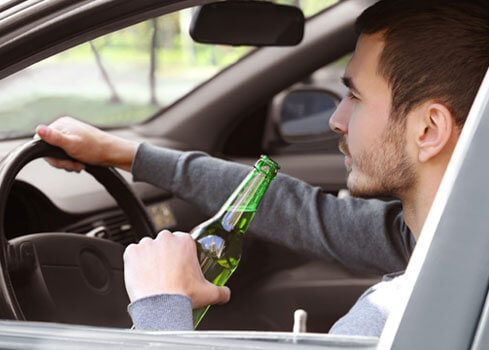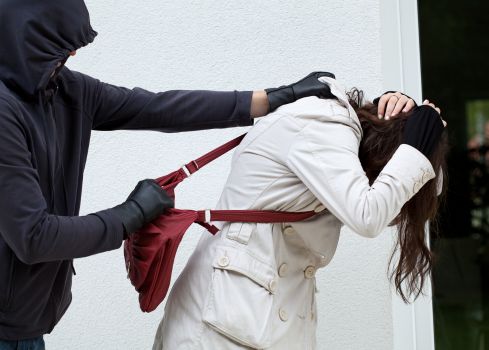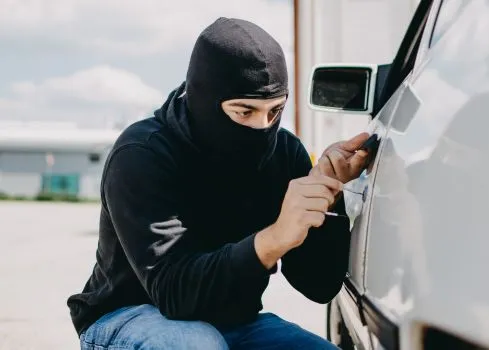Charlotte Vandalism Lawyer
Charlotte Vandalism Attorney
Any damage to someone’s property, whether the accused meant to cause harm or not, can lead to a criminal charge of vandalism. The reality is that a criminal charge of vandalism can lead to serious penalties. Juveniles could be haunted by the consequences of a conviction for years. If you are facing charges of criminal vandalism, it’s vital that you seek legal representation from a skilled Charlotte vandalism lawyer.
An experienced defense attorney can work to reduce your penalties so you do not have to worry about dealing with worst-case scenario outcomes.

What Is Vandalism?
Vandalism refers to the willful damage or destruction of someone else’s property. The criminal charge in North Carolina could refer to willful and wanton destruction of personal or real property. Those under the age of 18 can also be charged with vandalism. Though the penalties may be less severe for a juvenile, they are still serious.
An example of personal property could include a vehicle. Real property is anything that is fixed and cannot be moved. Land, trees, and buildings are examples of real property. Anything owned by the victim that was damaged would fit into one of these two categories.
Vandalism often involves damage or destruction to:
- Windows
- Tires
- Cars
- Park equipment
- Public property
- Homes
Sometimes, the offense is committed as a form of retaliation. Someone who keys an ex’s car after a breakup may not realize that act could be considered a crime. Other times, the act of vandalism was meant as a prank. Graffiti is often associated with this type of criminal charge.
Common acts that can lead to a vandalism charge include:
- Defacing public property
- Breaking a window
- Keying someone’s vehicle
- Spray painting graffiti
- Egging a home or vehicle
- Slashing someone’s tires
- Damaging or pulling down a street sign
- Kicking in a wall
- Defacing park equipment
No matter the details of your vandalism charge in Charlotte, North Carolina, a criminal defense attorney can work to have the potential penalties for your criminal charge reduced. If you did not commit the property crime, your lawyer will work to have your charges dropped.
Can Vandalism Be Considered a Felony?
Vandalism is typically charged as a Class 1 misdemeanor. North Carolina has four levels of misdemeanor crimes. Class 3 misdemeanors are the lowest level charge you can have for a crime in North Carolina. Anyone caught trespassing for the first time may be charged with a Class 3 misdemeanor, a conviction that would likely be resolved by paying a fine for first-time offenders.
The next most serious charge you can face is a Class 2 misdemeanor. These charges can be for reckless driving, disorderly conduct, or simple assault. Someone convicted of this level of crime faces up to 60 days in jail.
Class 1 misdemeanors are for serious crimes like petty larceny and criminal trespass. A conviction of this level of charge could lead to a fine that is determined by the court and up to 120 days in jail. Child abuse, stalking, and sexual battery can land someone with the most serious misdemeanor charge under Class A1, which can lead to penalties of fines and jail time up to 150 days.
The level of misdemeanor that you are charged with depends on factors like the maliciousness of the offense, the value of the property that was destroyed, and the defendant’s criminal record. Vandalism is rarely charged as a felony. However, aggravating factors can increase the classification of any crime. Individuals who commit egregious acts like vandalizing human remains or defendants who have an extensive criminal history may be charged with a felony for damaging property.
The Penalties for Vandalism
If you are facing misdemeanor charges for the first time and have no criminal record, your defense attorney may be able to resolve your case without the need to serve time in jail. As long as there are no aggravating factors involved, first-time offenders are often able to settle their criminal charges with a combination of fines, community service, and probation.
Aggravating factors, like when vandalism is committed alongside other crimes, can lead to more serious penalties. Anyone facing multiple criminal charges or a felony would have a harder time avoiding some level of jail time. Because vandalism involves damage to property, any fines associated with vandalism may include compensation to the owner of the damaged property.
Any criminal conviction will remain on your record. A criminal history could make it difficult to find a new job or rent a home. You would have to explain your criminal record to anyone who runs a criminal background check. This is why having an attorney throughout your criminal court ordeal is crucial. Any opportunity to lower the level of offense you are charged with should be taken seriously.
Common Defenses Against Vandalism
The criminal justice system can seem imposing and formidable. Anyone facing criminal charges can find themselves in a scary situation that feels hopeless. Our system of justice provides many protections for defendants, though. Prosecutors must prove beyond a reasonable doubt that you committed a criminal act and that you did so with criminal intent.
If prosecutors cannot prove that a crime occurred, you committed the crime, and you did so deliberately, then you may have a strong argument for reduced or dropped charges.
- The Element of Criminal Intent. Vandalism is different than other crimes like rape and murder. There are many potential reasons that someone’s property could be damaged that do not involve criminal intent. If your defense attorney is able to show that you did not intend to destroy personal or real property, your charges could be reduced or dropped. You may still be held financially accountable for damages you caused, but the case would no longer involve criminal charges.If you tripped and fell onto someone’s car, for example, any damage you caused may have been completely accidental. You may still have to pay for repairing the damaged car, but the absence of criminal intent could absolve you from criminal charges. Another example would be if the act was meant as a joke or prank. Egging someone’s car could lead to unintended damage that wasn’t the intent of the prank.In some cases, a jury may ultimately have to decide if a crime was committed.
- Mistaken Identity. One common defense against vandalism charges is mistaken identity. Eyewitnesses and law enforcement do make mistakes when trying to ID a suspect. If you were nearby but did not commit the crime, your lawyer can put the burden on prosecutors to prove beyond a reasonable doubt that you committed the crime.Another defense you can use is an alibi that shows that you were in a different location at the time of the crime. An eye witness could provide an alibi statement, or your defense attorney may be able to find evidence, like a credit card transaction or video footage, that places you at a different location than the scene of the vandalism at the time the crime took place.
- Alternative to Criminal Charges. Vandalism is an offense against someone’s property. The crime is unique in that it rarely involves bodily harm to a victim. Since the victim’s loss is material only, the victim has time to consider whether they wish to drop charges as long as restitution is made.The main concern of the property owner is usually related to the damaged property that they want repaired. Sending someone to jail will not make it easier to be reimbursed for damaged land or personal property.In almost all cases, settling the matter outside of court is advantageous for both parties. The defendant is able to avoid a potential criminal record, and the property owner is able to have their property repaired or replaced. Your vandalism attorney in North Carolina can work to explore ways to settle the matter outside of court.
How a Vandalism Attorney Can Help You
Facing any criminal charge is a serious matter and one that you should not handle alone. Vandalism is a unique crime, and your attorney can use many potential defense strategies to potentially reduce or drop your charges.
- Thorough Investigation. The first step begins with a thorough investigation of the act of vandalism. Your attorney will carefully listen as you explain what happened at the time of the vandalism. Your lawyer has access to police reports and other records used by prosecutors. Any discrepancies will be noted.As the case moves forward, there will be a period of time for discovery. Researching every detail of your case can help your lawyer find evidence that weakens the state’s case against you.
- Argue for Lowered Charges. Based on your lawyer’s understanding of criminal law, your defense attorney could argue that you should face a lesser charge that comes with lower penalties. In our system of justice, the penalties should be proportional to the crime that was alleged to have occurred. If you did not set out to cause property damage, or if the property damage is minimal, you may have legal grounds for arguing that you should not face potential jail time.
- Gather Eyewitness Testimony and Accounts. Your lawyer will also question witnesses and gather witness statements that support your case. If any testimony from witnesses is contradictory, that may weaken the state’s case. Witness testimony could also support your claim of innocence.
- Consider Taking a Plea Bargain Settlement. The vast majority of criminal cases in North Carolina are settled via the plea bargaining system. Prosecutors will often offer a reduced criminal charge or lower penalties in return for a guilty plea from the defendant. Accepting a lower charge can allow you to put a dark chapter behind you. Your lawyer will provide counsel on the merits of accepting a plea bargain offer or moving forward to trial.
- Represent You at Trial. If the facts of the case show that you did not commit the crime you are charged with, a jury or judge may ultimately decide whether you are guilty or innocent. Your vandalism attorney will argue the merits of your case and work to persuade the judge or jury that you did not commit the crime of vandalism. Trials offer an opportune time to question testimony from witnesses. Anyone who can attest to your innocence may testify as well.
FAQs
Q: What Is the Punishment for Vandalism in North Carolina?
A: Vandalism is a misdemeanor crime in North Carolina. The punishment could vary widely, depending on factors like the value of the damaged property and the defendant’s past criminal record. First-time offenders are often given a more lenient punishment, while anyone with multiple criminal convictions could face jail time and steep fines.
Q: What Is the Charge for the Destruction of Property in North Carolina?
A: The charge for destruction of property in North Carolina is called vandalism. Most charges are some type of misdemeanor, although, in some circumstances, aggravating factors could raise the charge to a felony. North Carolina sees damage or destruction of personal property and real property (land) as grounds for this crime.
Q: What Is the Criminal Charge of Graffiti in North Carolina?
A: The criminal charge of graffiti is vandalism. Spraying someone’s property is considered damaging that property in the eyes of North Carolina’s justice system. Graffiti often involves the use of spray paint, but it doesn’t necessarily have to. The penalty for vandalism that results from graffiti will be determined based on the value of the property that was damaged and the defendant’s criminal history, among other factors.
Q: What Is a Class 1 Misdemeanor in North Carolina?
A: In North Carolina, there are four levels of misdemeanor charges. In order of least severe to most severe, the misdemeanor classes are Class 3, Class 2, Class 1, and Class 1A. The maximum jail sentence for a Class 1 misdemeanor conviction is 120 days. The fine is at the discretion of the court.
Schedule Your Charlotte Vandalism Lawyer Consultation Today
Prosecutors have a high bar to meet when proving that someone committed vandalism. Having an experienced defense attorney on your side can greatly improve your chances of a favorable outcome in your case. The Law Office of Kevin L. Barnett has helped many clients receive lowered charges after they were arrested for vandalism. In some cases, the matter can be resolved entirely outside of court. To schedule your vandalism consultation, contact our office today.



© Copyright 2024 The Law Office of Kevin L. Barnett • All Rights Reserved. Disclaimer | Site Map | Privacy Policy

















